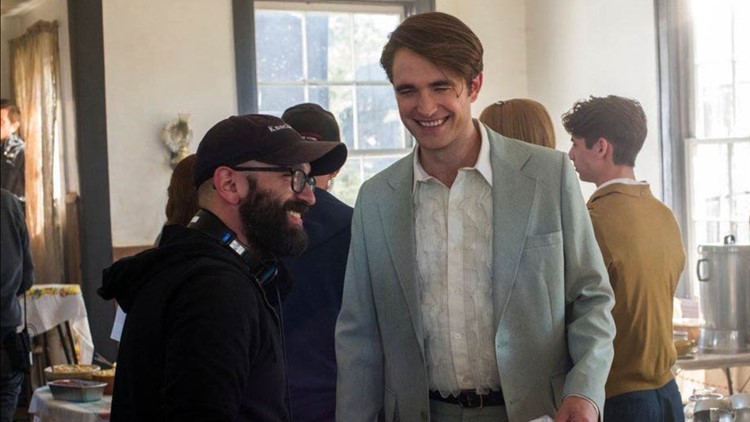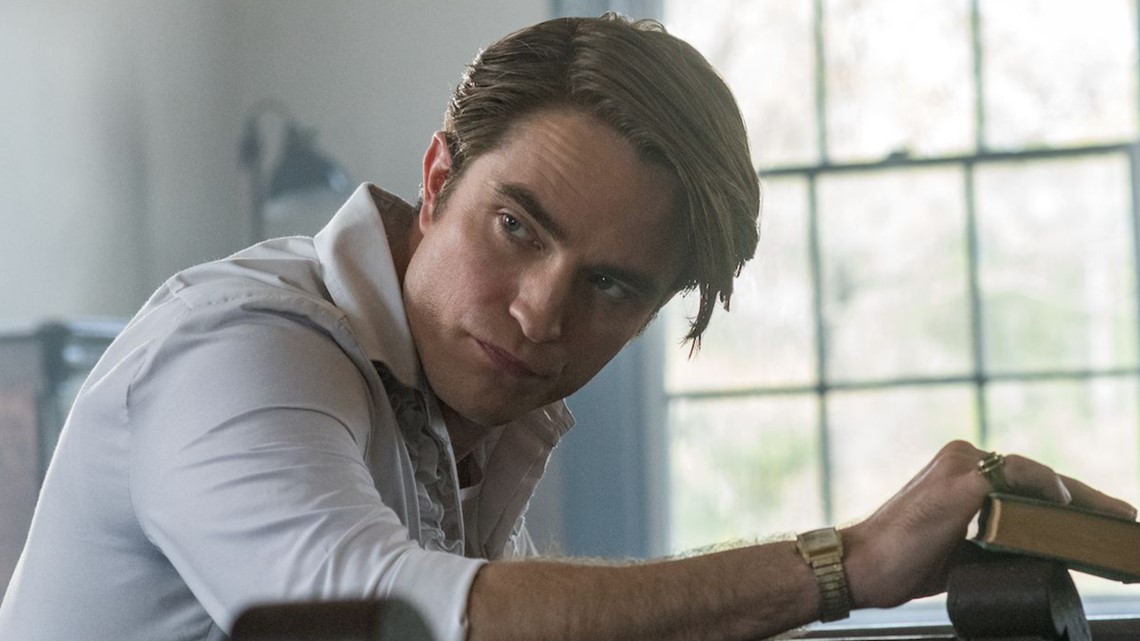ST. LOUIS — "Where there is church, the devil lives next door."
The best directors are the ones that never stop exploring the uncomfortable corridors of humanity; taking a deep glimpse at how certain choices and action play a big part in our lives. The filmmakers who chase after that demon are the ones you need to follow. I don't know at this moment that Antonio Campos is a great director, but I am really enjoying his themes and explorations in film.
Campos' latest, "The Devil All The Time," explores the darker intentions of how people absorb religion, including the many philandering and untrustworthy yet great sounding preachers who still roam around to this day. The Netflix Original film, currently streaming worldwide, takes a deep introspective look at the way people use the power of faith, and it can lead to some violent actions. When you add that into Donald Ray Pollock's Swiss Bank folksy backwoods tale about generational wrath and morals mixing with bad religion, the cinema practically screams for your attention.
Campos took the time to speak with myself and a few other esteemed film critic colleagues about the film and its themes this week. A very well-spoken New York native who really knows how to take a pause and dig into a question, Campos told us about why he squared up Peter Parker versus Bruce Wayne in his latest.
When Review St. Louis' Kevin Brackett asked Campos about changing up scenes from Pollock's novel, the writer-director-producer noted how the author was a part of that idea. "In the book, it happens in a little part of the garden where Teagarden took his victims. We switched it to the church. We changed the dynamic there. We took a note from Don and played with it, keeping the essence of the scene, making it more dynamic and cinematic in a way," Campos said.
Campos broke down his favorite scene, which happens to be the climactic showdown between Tom Holland's avenging Arvin and Robert Pattinson's alluring yet toxic preacher. The two actors are sitting in a church, exchanging seemingly innocent words when suddenly the dialogue becomes more threatening. By switching the setting to the church, Campos struck the right chord in connecting with his audience. The church, a place that can determine if someone's soul is corrupt or not by how he takes the message presented, gives the scene that extra weight.
Jeff Mitchell of the Phoenix Film Festival asked about the question surrounding the film being anti-religion, and Campos assured that this particular intention wasn't his plan. "It's about extreme believers in their faith and the dangers of that. All these characters are screaming to heaven, looking for answers," Campos told the Zoom roundtable. " What they get in return is silence, and in that void, they fill it with an answer themselves. They can fill a need or problem with a dangerous answer. People in power can take advantage of people."
I asked Campos about his desire to run down the darkness in people and their actions/fates, and he responded with the insight one would expect from someone who doesn't direct films just to have a good job; Campos needs to do this. "It's the challenge of making these dark and complicated characters accessible, and trying to understand what drives them and motivates them," Campos said.
"Exploring the darkness in books, arts, and movies is a safe place to explore those things ... that side of the coin informs the way that we perceive life. Understanding why people make the choices they make. At the end of the day, can we find any humanity in them?"
If you ask me, Hollywood needs more filmmakers like Campos. The guy who produces a hard-hitting honest drama such as "Martha Marcy May Marlene," about a woman deciding to leave an abusive cult. Then you have "After School," with Ezra Miller playing an internet bloodhound who captures two girls overdosing on his phone. Campos doesn't play around in one age gap or area of intrigue. He visits multiple eras and time periods in "The Devil All The Time," which could be his best film to date.
He's constantly going after the room in the make believe house where bad things happen to good people, and how an abuse of power, even one drenched in a person's religion, can destroy not just one generation but several. An impact that is felt for many years.
Take this scene in the film. Before we meet Pattinson's evil Teagardin in the film, the audience meets the doomed yet fearless Roy Laferty, brilliantly played by Harry Melling. He walks into the church one day in Knockemstiff, Ohio, staking his claim to the many praying townspeople in the house. After his rousing sermon, Laferty has several spiders dumped on his head as a way to convince the audience he means business, that he is not afraid. Those people believe him, especially one sweet woman named Helen Hatton (Mia Wasikowska). What you'll come to find out about Roy and Helen is sad but true, carrying a demonic element of how words and the way one says them can dictate actions and lead to drastic events.
That's what Antonio Campos is after, and I'll keep following him down that road. You should too. He's a believer in the fatalistic idealism found in Jacob Riis', a famous Philadelphia photographer who spent his days and nights in the slums of the city taking pictures of the poor. That where there is a church, the devil lives next door.
Pollock wrote about the truth in that statement, and Campos brought it all to life in "The Devil All The Time." Go watch it.
Thanks for reading.




